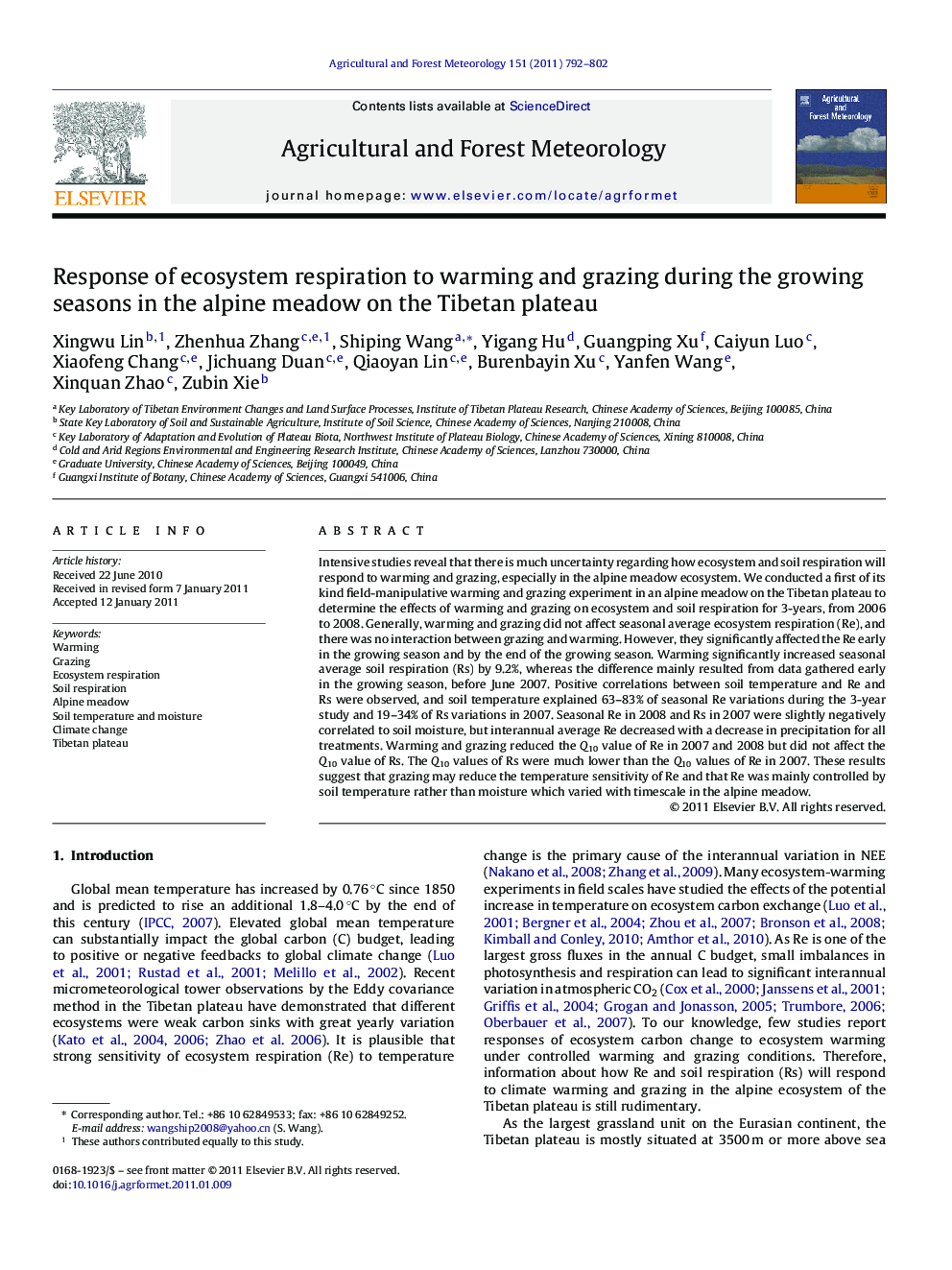| Article ID | Journal | Published Year | Pages | File Type |
|---|---|---|---|---|
| 82011 | Agricultural and Forest Meteorology | 2011 | 11 Pages |
Intensive studies reveal that there is much uncertainty regarding how ecosystem and soil respiration will respond to warming and grazing, especially in the alpine meadow ecosystem. We conducted a first of its kind field-manipulative warming and grazing experiment in an alpine meadow on the Tibetan plateau to determine the effects of warming and grazing on ecosystem and soil respiration for 3-years, from 2006 to 2008. Generally, warming and grazing did not affect seasonal average ecosystem respiration (Re), and there was no interaction between grazing and warming. However, they significantly affected the Re early in the growing season and by the end of the growing season. Warming significantly increased seasonal average soil respiration (Rs) by 9.2%, whereas the difference mainly resulted from data gathered early in the growing season, before June 2007. Positive correlations between soil temperature and Re and Rs were observed, and soil temperature explained 63–83% of seasonal Re variations during the 3-year study and 19–34% of Rs variations in 2007. Seasonal Re in 2008 and Rs in 2007 were slightly negatively correlated to soil moisture, but interannual average Re decreased with a decrease in precipitation for all treatments. Warming and grazing reduced the Q10 value of Re in 2007 and 2008 but did not affect the Q10 value of Rs. The Q10 values of Rs were much lower than the Q10 values of Re in 2007. These results suggest that grazing may reduce the temperature sensitivity of Re and that Re was mainly controlled by soil temperature rather than moisture which varied with timescale in the alpine meadow.
Research highlights► We conducted a first of field-manipulative warming and grazing experiment from 2006 to 2008. ► Warming and grazing did not affect seasonal average ecosystem respiration (Re). ► Warming significantly increased seasonal average soil respiration (Rs) by 9.2% in 2007. ► Soil temperature explained 63-83% of seasonal Re variations and 19-34% of Rs variations. ► Warming and grazing reduced the Q10 value of Re in 2007 and 2008 but did not affect the Q10 value of Rs.
